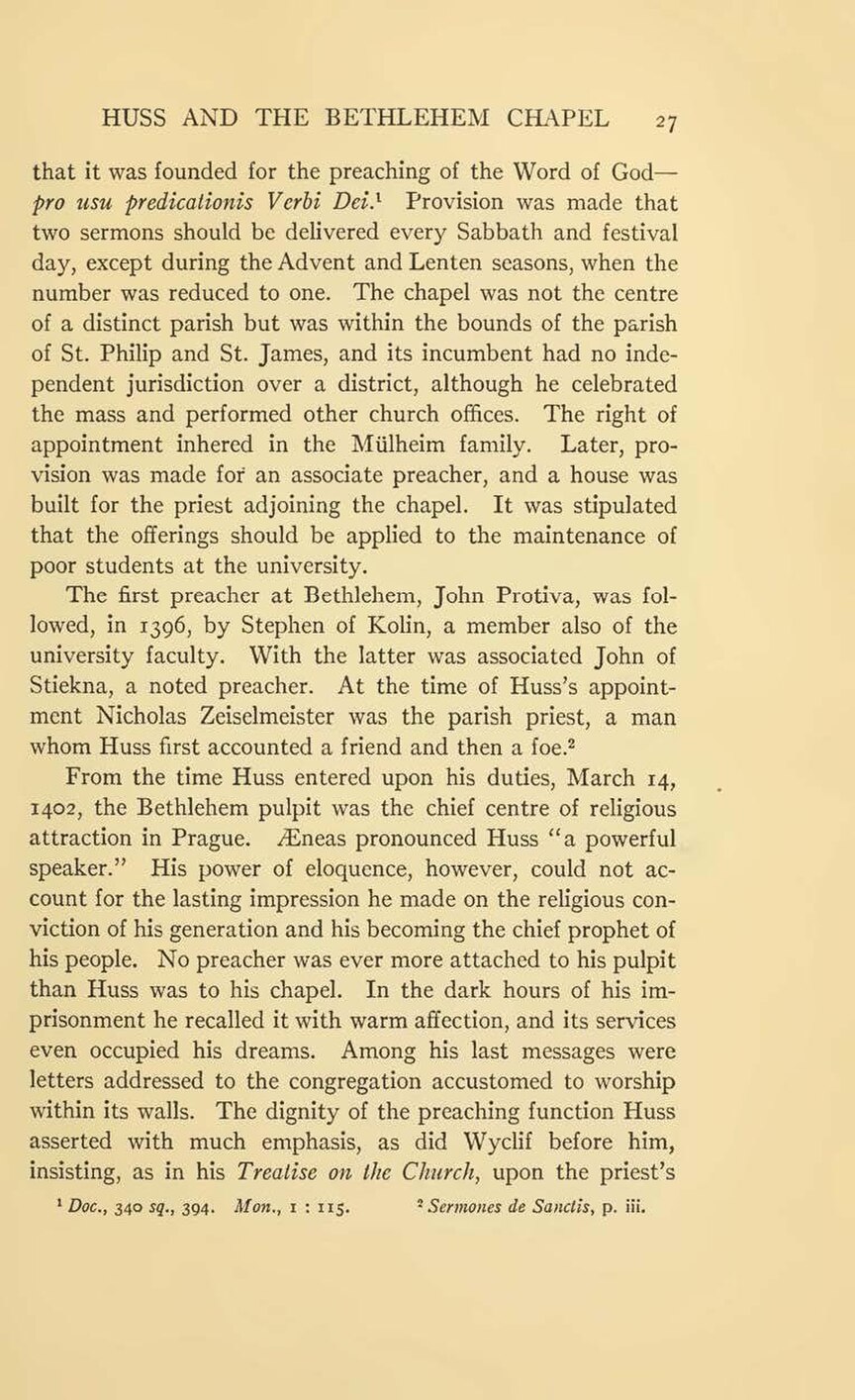that it was founded for the preaching of the Word of God—pro usu predicationis Verbi Dei.[1] Provision was made that two sermons should be delivered every Sabbath and festival day, except during the Advent and Lenten seasons, when the number was reduced to one. The chapel was not the centre of a distinct parish but was within the bounds of the parish of St. Philip and St. James, and its incumbent had no independent jurisdiction over a district, although he celebrated the mass and performed other church offices. The right of appointment inhered in the Mülheim family. Later, provision was made for an associate preacher, and a house was built for the priest adjoining the chapel. It was stipulated that the offerings should be applied to the maintenance of poor students at the university.
The first preacher at Bethlehem, John Protiva, was followed, in 1396, by Stephen of Kolin, a member also of the university faculty. With the latter was associated John of Stiekna, a noted preacher. At the time of Huss’s appointment Nicholas Zeiselmeister was the parish priest, a man whom Huss first accounted a friend and then a foe.[2]
From the time Huss entered upon his duties, March 14, 1402, the Bethlehem pulpit was the chief centre of religious attraction in Prague. Æneas pronounced Huss “a powerful speaker.” His power of eloquence, however, could not account for the lasting impression he made on the religious conviction of his generation and his becoming the chief prophet of his people. No preacher was ever more attached to his pulpit than Huss was to his chapel. In the dark hours of his imprisonment he recalled it with warm aficction, and its service even occupied his dreams. Among his last messages were letters addressed to the congregation accustomed to worship within its walls. The dignity of the preaching function Huss asserted with much emphasis, as did Wyclif before him, insisting, as in his Treatise on the Church, upon the priest’s
